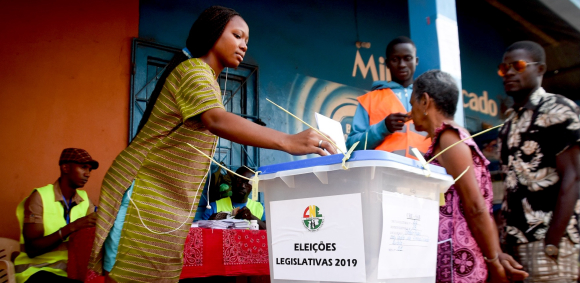The Chadian government has officially terminated its long-standing partnership with African Parks, a conservation organisation whose board includes Prince Harry, accusing it of mismanagement and failure to curb poaching across key wildlife reserves.
In a statement released by the Ministry of Environment, the government said the charity had demonstrated “arrogance and a lack of respect” toward Chadian authorities, citing its unwillingness to collaborate effectively. The move ends African Parks’ 15-year mandate to oversee two of Chad’s most important natural reserves the Ennedi Natural and Cultural Reserve and the Greater Zakouma Ecosystem, which encompasses both Zakouma and Siniaka-Minia national parks.
African Parks, a non-profit conservation group based in South Africa, manages 22 protected areas in 12 African countries, covering over 20 million hectares of land. The organisation confirmed it had received the government’s “unilateral decision” and stated that it had begun discussions with the ministry to “understand the government’s position and explore the best way forward to continue protecting these vital landscapes.”
Prince Harry, who joined African Parks in 2016 and served as its president for six years before joining its board of directors in 2023, has long championed wildlife protection and community-led conservation efforts. The latest controversy, however, marks another setback in his philanthropic portfolio following his earlier resignation as patron of Sentebale — a charity he co-founded to support children orphaned by Aids in Botswana and Lesotho.
Chad’s Environment Minister Hassan Bakhit Djamous sent an official letter to African Parks on Monday notifying it of the government’s decision to terminate the agreement, citing a resurgence of poaching and a lack of tangible investment in park infrastructure and local communities. The ministry accused the organisation of “failing to fulfil its core conservation mandate,” saying its approach had led to a deterioration in wildlife protection standards.
This is not the first controversy to hit African Parks in recent months. Earlier this year, the charity admitted that some of its employees in a park it managed in the Republic of Congo had abused local residents a scandal that drew international criticism after the organisation refused to publish an independent report into the incidents.
Despite the backlash, African Parks has continued to receive strong financial backing from global donors. According to its 2023 annual report, the charity’s operations are supported by major funders including the European Union, Walmart heir Rob Walton, and Howard Buffett, son of American billionaire Warren Buffett. The group reported receiving more than $500,000 (£375,000) annually in support for its conservation projects.
Founded in 2000, African Parks was created to protect Africa’s national parks by combining ecological restoration with social and financial sustainability. Its stated goal has been to ensure that each park it manages becomes self-sustaining while promoting community participation and biodiversity conservation. However, critics argue that the charity’s model of centralised control has often clashed with local governments and communities a tension that appears to have reached breaking point in Chad.
The end of this partnership marks a major shift in Chad’s approach to conservation management, raising questions about the future of its protected ecosystems and the fate of endangered species within them. The Zakouma National Park, once decimated by poaching, had seen notable improvements under African Parks’ management, including the revival of its elephant population.
Still, the Chadian government insists the decision was necessary, asserting that “sovereign oversight” must take precedence over foreign-led initiatives that fail to deliver results. For African Parks and its high-profile board member Prince Harry, the fallout could have broader implications for the credibility of their conservation model and for the global conversation around how African nations manage their natural heritage.
As both sides begin discussions on the transition of management responsibilities, conservationists are watching closely to see whether Chad will be able to maintain its progress in wildlife protection without African Parks’ involvement and whether this marks the beginning of a wider reassessment of international conservation partnerships across the continent.














Leave a comment